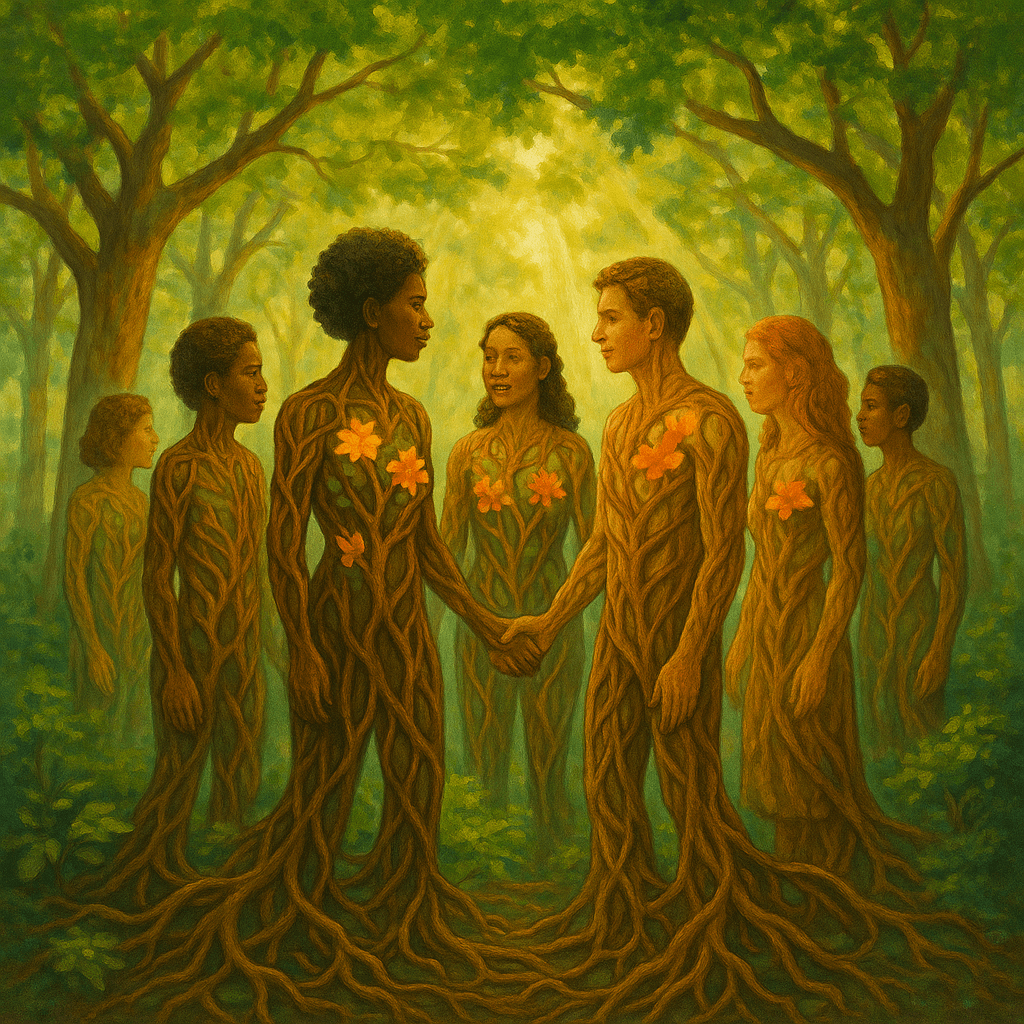Ubuntu: Humanity Flourishes Through Connectedness

A person is a person through other persons. — Ubuntu Philosophy
—What lingers after this line?
One-minute reflection
Where does this idea show up in your life right now?
The Essence of Ubuntu Philosophy
At the heart of this statement lies the core of Ubuntu, an African philosophy emphasizing communal interdependence. Ubuntu, often translated as 'I am because we are,' asserts that personal identity and dignity are inextricably linked to the fabric of relationships within a community. Unlike Western ideologies that prioritize individualism, Ubuntu posits that one’s humanity is realized only through mutual recognition and shared existence.
Historical and Cultural Context
To deepen our understanding, we can look to the societies where Ubuntu flourished. In many Southern African cultures, the saying is more than a proverb; it is a guiding principle. The philosophy informed tribal governance, conflict resolution, and social structure. For instance, in Nelson Mandela's South Africa, Ubuntu was invoked to unite a divided nation, as seen in the Truth and Reconciliation Commission, which promoted healing through collective responsibility rather than retribution.
Contrasting Philosophical Traditions
Transitioning from Ubuntu, Western traditions like those found in John Locke’s writings focus on the autonomous self, valuing independence and personal rights. In contrast, Ubuntu re-centers value on the community, suggesting that fulfillment arises not in isolation but in shared belonging. This contrast deepens our appreciation of Ubuntu’s challenge: it calls for a reevaluation of the very foundations upon which society is built.
Applications in Modern Society
Bridging history and philosophy with daily life, Ubuntu’s principles have relevance today in areas such as restorative justice, cooperative workplaces, and inclusive education. The approach is evident in team-based organizational structures and in societies that seek reconciliation over retribution after conflict. For example, community-based support networks during crises often embody Ubuntu's ethos by prioritizing collective welfare over individual gain.
Ubuntu’s Enduring Legacy
Ultimately, Ubuntu endures as an invitation to recognize our shared humanity. Its wisdom resonates in global challenges, from climate action to public health, where solidarity and empathy shape outcomes. As we navigate increasingly interconnected societies, Ubuntu's reminder is clear: our well-being is intertwined, and a compassionate world is one in which each person is uplifted by—and for—the other.